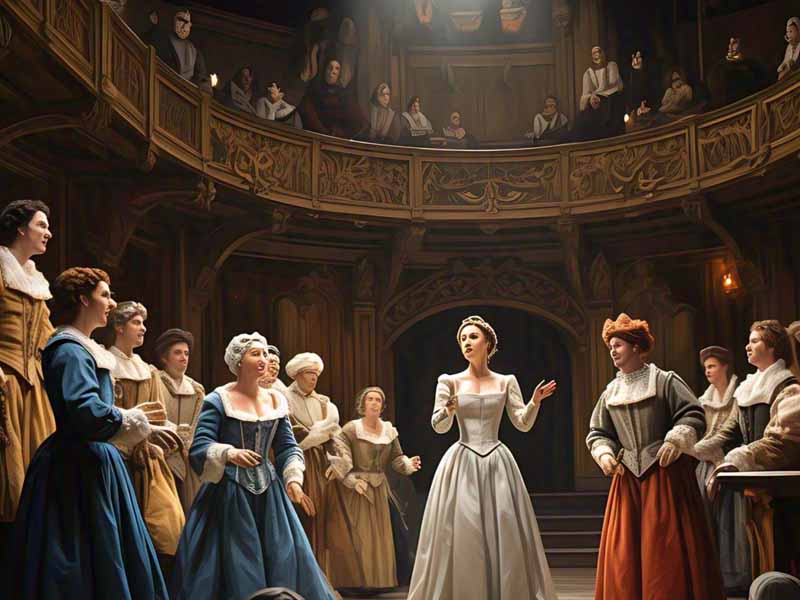
Upstartcrowthecomedy – Unmasking Disguise in Elizabethan England reveals a fascinating reality women were strictly prohibited from performing on stage. The law dictated that only men could act in plays, leading to young boys taking on female roles in Shakespearean dramas and other theatrical productions. This restriction reflected broader societal norms that viewed public performance as inappropriate and even immoral for women.
Despite this prohibition, the presence of female characters in theater remained essential, and audiences had to suspend disbelief as male actors portrayed women. This practice, while legally enforced, also symbolized the rigid gender roles that defined Elizabethan society. However, some women who aspired to act or participate in the arts sought ways to bypass these restrictions. Leading to real-life instances of disguise.
Unmasking Disguise also sheds light on how some women. Eager for independence or professional opportunities, resorted to disguising themselves as men. In a society where women had limited rights and were expected to remain under male authority. Some bold individuals took drastic measures to carve out their own paths.
Dressing as men allowed these women to access professions, education, and experiences that were otherwise denied to them. Some took to the stage in secret, while others pursued careers in fields such as writing, exploration, or even military service. However, successfully maintaining a disguise required more than just wearing men’s clothing. It involved altering speech patterns, mannerisms, and behaviors to align with male expectations.
“Writing Assistant, Grammarly for Flawless Editing!”
Unmasking Disguise in Elizabethan England also reveals that maintaining a false identity was no easy feat. Elizabethan society had strict gender norms, and anyone deviating from them risked suspicion or exposure. Women who disguised themselves as men had to master not only male dress but also speech, body language, and social customs.
Even slight differences in tone of voice or walking style could arouse doubt. Additionally, women had limited access to education. Making it harder to adopt the rhetoric and knowledge expected of men in certain professions. Those who were caught faced severe consequences, including public shame, legal punishment, or being forced back into traditional female roles.
Despite these risks, stories of women successfully disguising themselves continue to captivate historians and literature enthusiasts. From the pages of Shakespeare’s plays where characters like Viola in Twelfth Night and Rosalind in As You Like It cleverly navigate society in disguise to real-life historical figures. These stories highlight the lengths women went to for autonomy.
Unmasking Disguise in Elizabethan England ultimately reveals a hidden world where gender roles were sometimes challenged, albeit at great personal risk. These acts of defiance, whether on stage or in daily life, offer a glimpse into the struggles and resilience of women in a time when society severely restricted their freedom.
“Palm Oil Leads Rivals, Offering Attractive Returns”
This website uses cookies.